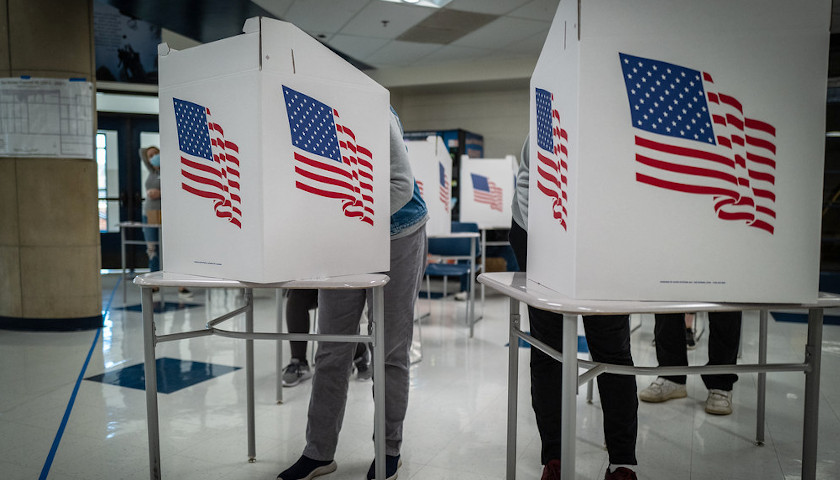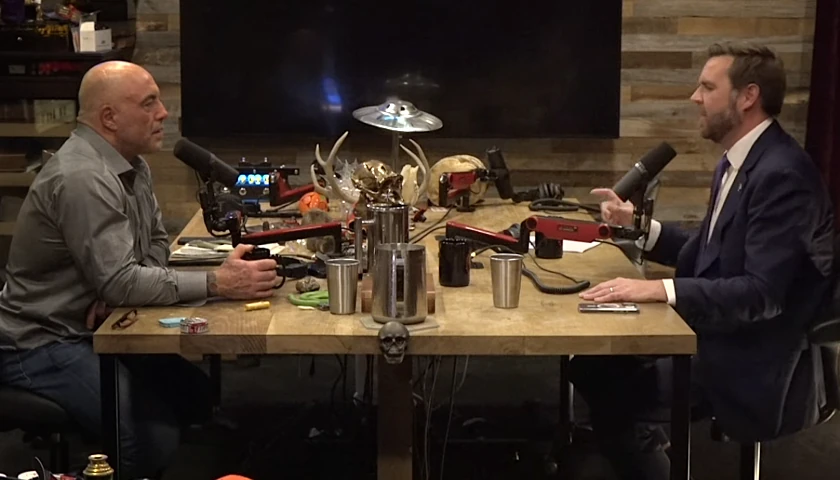Legislation passed by the Pennsylvania Senate State Government Committee on Tuesday would allow candidates and political parties to appoint poll watchers from any Pennsylvania county to any election precinct.
Under current law, candidates and parties may assign poll watchers—often party committee members or other volunteers—to election districts only within those poll watchers’ respective counties. The appointed watchers may make good-faith challenges to a voters’ identity, residence or voting eligibility.
All Republicans and no Democrats on the Senate committee supported the measure, sponsored by state Sen. Doug Mastriano (R-Gettysburg), to permit out-of-county poll watchers.
Since the run-up to the 2016 presidential election, Democrats have characterized the idea of out-of-county poll watchers as a Republican stratagem to build up the ranks of GOP election overseers to hamper or intimidate Democratic voters and poll workers. But until mid-2016, many Democratic lawmakers backed the policy.
In 2013, then state Rep. Rick Saccone (R-Jefferson Hills) introduced a bill to let a voter serve as a poll watcher outside of his or her county. Of the eight representatives sponsoring the legislation, two were Democrats.
When Saccone’s measure received a House State Government Committee vote the following September, it passed 17 to six. Three Democrats—Mary Jo Daley (D-Conshohocken), Brian Sims (D-Philadelphia) and Greg Vitali (D-Havertown)—voted in favor. All three are liberals from the Philadelphia area.
Saccone’s legislation did not receive a floor vote in that session, so he proposed it again in 2015.
“I believe it is arbitrary to limit the ability of a registered voter to serve as watcher outside of his or her county of residence,” the representative wrote in a memorandum on the bill. “Many of the Commonwealth’s elections have statewide and federal implications, which mean Pennsylvania’s registered voters, regardless of location, have a vested interest in ensuring that the electoral process is properly administered in every election district.”
Co-sponsored by Jaret Gibbons (D-Ellwood City), the Saccone bill would receive the support of all Democrats and Republicans who voted on it in committee in June 2016. Two of the Democrats who voted against it in the previous session—Philadelphians Mark Cohen and Michael O’Brien—would vote for it.
But just months later, Pennsylvania Democrats would perform a turnabout, bristling at then President Donald Trump’s urging of Pennsylvania Republicans to ensure they had robust poll-watching efforts.
“They should mind their business and stay in their own county,” Philadelphia Democratic Party chair Bob Brady said.
On Sept. 21, 2016, House Democrats moved to postpone consideration of Saccone’s poll-watcher bill. Every member of their caucus, including Gibbons and every Democrat who supported the bill in committee, voted for the postponement.
Republican representatives, who held a majority, defeated the Democrats on that vote, but the former did not bother to advance the bill toward what they knew would be a veto by Gov. Tom Wolf (D).
Senate Democrats railed against the Mastriano proposal in Tuesday’s committee meeting.
“I have a district where we have a number of issues, we have low-income people of color and areas where those communities are most primed to be flooded with people from outside of the community to intimidate our voters,” Sen. Sharif Street (D-Philadelphia) said.
In addition to allowing out-of-county poll watchers, Mastriano’s bill would allow candidates from all political parties to increase the number of watchers they appoint from two to three. The measure would also allow one watcher appointed by a candidate and one watcher appointed by each candidate’s political party to be present inside of a polling place at the same time.
The senator’s bill underscores concerns that Republicans have voiced regarding reports that their party’s watchers were denied access to Philadelphia polling places last November despite having duly obtained credentials form their county election boards.
“Increasing the number of eligible poll watchers for all political parties and candidates adds another layer of observation and transparency to ensure that election law is strictly adhered to,” Mastriano said. “Allowing out-of-county poll watchers ensures that all parties will have a chance at equal poll-watcher representations at the polling places throughout the commonwealth, especially in counties where it may be difficult to recruit watchers of the same party.”
– – –
Bradley Vasoli is a reporter at The Tennessee Star and The Star News Network. Follow Brad on Twitter at @BVasoli. Email tips to [email protected].
Photo “People Voting” by Phil Roeder. CC BY 2.0.








